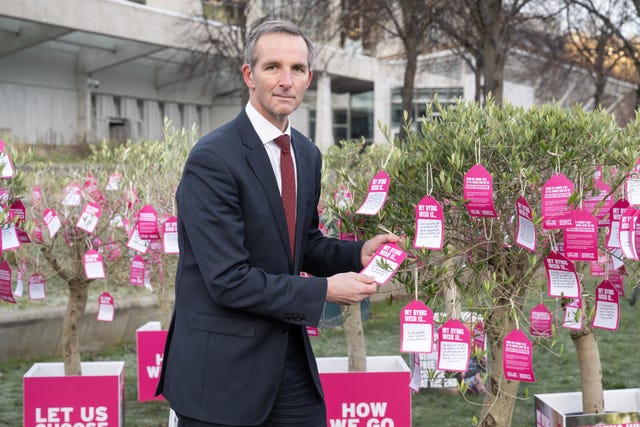Sturgeon won’t back assisted dying legislation
The legislation will be voted on by MSPs on Tuesday.

Former first minister Nicola Sturgeon will not back a proposal to bring in assisted dying in what she described as the “most difficult decision” of her career as an MSP.
The Assisted Dying for Terminally Ill Adults (Scotland) Bill has been proposed by Lib Dem MSP Liam McArthur and will go before MSPs for an initial vote on its general principles on Tuesday.
The proposals – the third such attempt since the Scottish Parliament was founded – would allow terminally ill Scots to seek to end their own lives and has sparked an impassioned debate inside and outwith Holyrood.

On Monday, Nicola Sturgeon became the latest high-profile MSP to announce she would not back the legislation over fears around the threat of coercion and the definition of a terminal illness being too broad.
In a post on Instagram, the former first minister said: “This is the most difficult decision I have had to arrive at in my years as an MSP and I know that all of my colleagues feel the weight of the votes we will cast tomorrow,” she said.
She added: “I have come to the conclusion that while some of the misgivings I have about the Bill in its current form could be addressed by amendments, some of my concerns are so fundamental that this would not be possible.
“It is for that reason I have decided to vote against the Bill tomorrow.”
While she praised Mr McArthur’s approach to the Bill as being one of “great sensitivity”, Ms Sturgeon added: “I worry about the change in the doctor-patient relationship that would result from legislating to allow assisted dying and also about how it might profoundly change society’s attitude to life and death and in particular to the importance of supporting people through good palliative care to live well before dying well.”
But her “more fundamental concerns are two-fold”.
“Firstly, while the Bill has provisions on coercion, I do no believe it will ever be possible to even identify, let alone guard against what is often described as internal coercion – a feeling on the part of terminally ill individuals that others might be better off if they were no longer here.
“I worry that older people in particular may be vulnerable to such a feeling.
“It would risk a situation in which the right to die might become, in the minds of some people, a perceived duty to die.
“I know that supporters of the Bill believe this to be a hypothetical risk that would not arise in practice and I respect that. However, it is not a risk I feel able to take.”
She continued: “Secondly, I am deeply concerned that the definition of terminal illness in the Bill is too wide.
“There are many people diagnosed with terminal conditions from which they will never recover and which will eventually cause them to die prematurely – the definition of the Bill – who will nevertheless be able to live full and happy lives for many months, even years before their death occurs.
“However, in the dark moment of a diagnosis – or in the aftermath of it – it may be difficult for them to envisage this.
“If assisted dying is an option, I worry that many people will choose to die more prematurely than they need to.”
The latter point, the former first minister said, could be fixed through amendments at a later stage, but “given the difficulty of putting a precise time limit on someone’s life expectancy”, she did not believe it to be possible.
Ms Sturgeon will join her successors Humza Yousaf and John Swinney, along with Deputy First Minister Kate Forbes and Scottish Labour leader Anas Sarwar, in voting against the legislation on Tuesday.
All parties have agreed to give MSPs a free vote on the issue.





